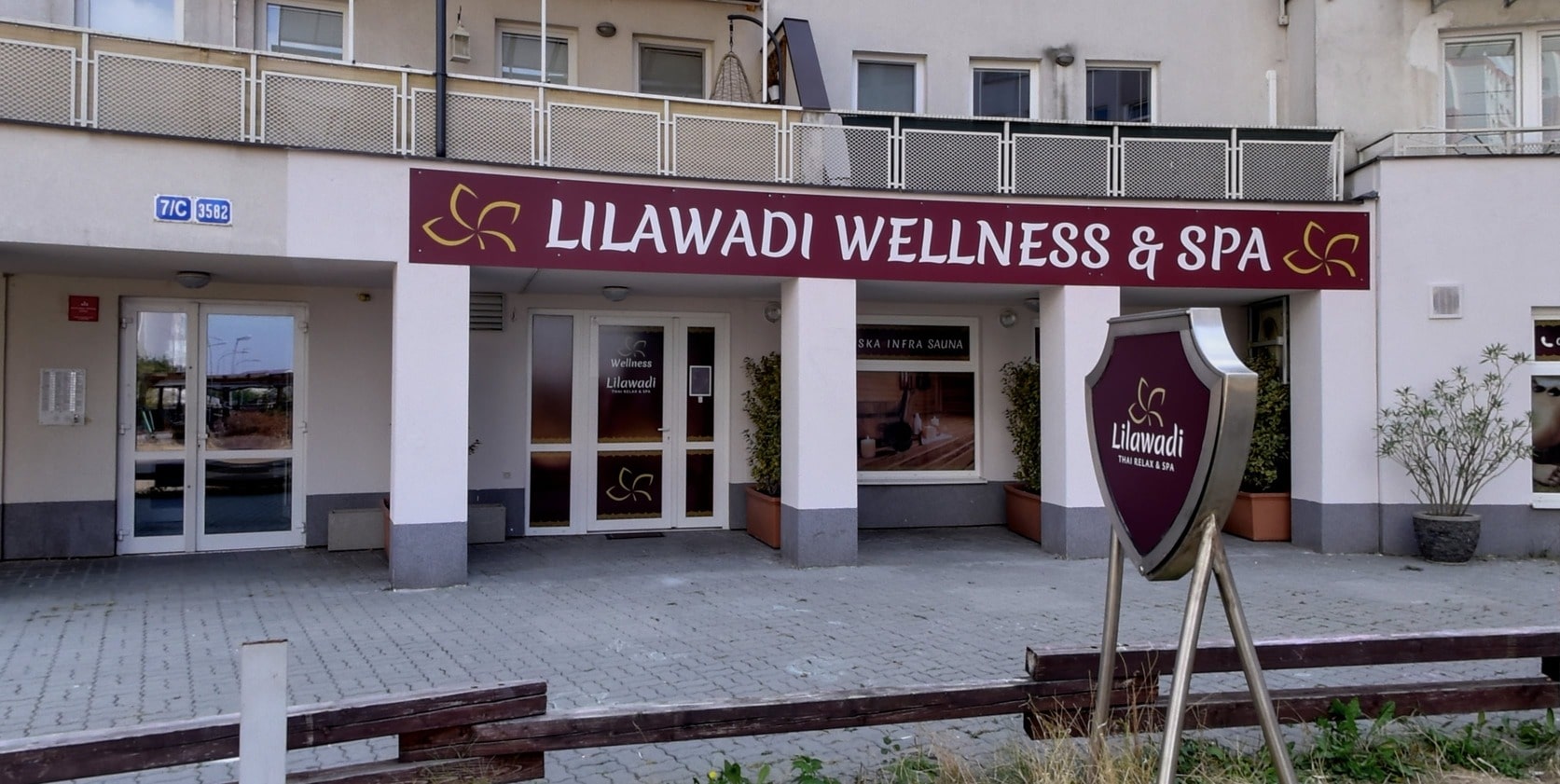Imagine opening a bottle of lavender and immediately feeling the tension melt away from your shoulders. Or filling a room with the scent of eucalyptus and suddenly finding it easier to breathe. It’s not magic—it’s aromatherapy. A natural therapy that works with our oldest sense: smell.
What is aromatherapy and how does it work?
Aromatherapy uses essential oils – concentrated extracts from plants, flowers, bark, or roots. Each oil contains dozens to hundreds of natural chemical compounds that can affect our body and mind.
How does it work?
When you inhale a scent, the molecules of the essential oil enter your nose and activate your olfactory receptors. These send signals directly to the limbic system – the part of the brain that controls emotions, memory, and stress. That is why a certain scent can immediately evoke memories or change your mood.
During massage, the oils are also absorbed through the skin and enter the bloodstream, where they can affect the entire body.
A brief look at the history of aromatherapy
Aromatherapy is not a modern trend. Our ancestors used healing scents thousands of years ago:
Ancient Egypt considered scents to be a gift from the gods. Priests used incense in rituals, Cleopatra reportedly bathed in rose water, and Egyptian doctors applied myrrh to wounds.
Greece and Rome elevated aromatherapy to medicine. Hippocrates, the father of medicine, recommended scented baths and believed that daily use of aromatic oils prolonged life.
India and China integrated scents into Ayurveda and traditional Chinese medicine. Sandalwood, patchouli, and ginger were an integral part of healing rituals.
Medieval monasteries grew herbs and used incense in their prayers. Monks believed that scents purified not only the body but also the soul – they symbolized a connection with God.
The modern term “aromatherapy” was introduced in 1937 by French chemist René-Maurice Gattefossé, who experienced the healing effects of lavender on burns firsthand.

During massage, oils are absorbed through the skin and enter the bloodstream.
How aromatherapy affects stress and the psyche
We live in a time when stress is our constant companion. Aromatherapy offers a natural path to relief—without the side effects of medication.
Inhaling scents such as lavender, bergamot, or ylang-ylang activates the parasympathetic nervous system, which slows the heart rate, relaxes the body, and induces a feeling of calm.
Another very effective method to help you get rid of stress is lava stone massage, which combines the healing power of heat and touch.
The best oils for stress relief:
| Essential oil | Effect on the psyche | Recommended method of use |
| Lavender | Calms, improves sleep | Diffuser, massage |
| Bergamot | Relieves tension, boosts energy | Bath, inhalation |
| Orange | Improves mood | Room fragrance |
| Ylang-ylang | Helps with anxiety | Massage, aroma lamp |
| Roman chamomile | Calming, immunity support | Diffuser, bath, inhalation |
The most important benefits of aromatherapy
Aromatherapy offers many benefits for both body and soul:
Physical benefits:
- improves blood circulation,
- strengthens immunity,
- relieves muscle tension,
- promotes quality sleep.
Mental benefits:
- reduces stress and anxiety,
- improves concentration,
- helps with insomnia,
- harmonizes emotions.
Advantages vs. disadvantages:
| Advantages | Disadvantages |
| Natural therapy without chemicals | Some oils may irritate the skin |
| Supports regeneration of body and soul | Requires knowledge of dosing |
| Complements the effects of massage and meditation | Not suitable for everyone (e.g., pregnant women) |

Not suitable for everyone (e.g. pregnant women)
The hidden benefits of aromatherapy that aren’t often talked about
In addition to its well-known relaxing effects, aromatherapy also has some lesser-known benefits:
It improves cognitive function
- Rosemary can increase memory by up to 15% – ideal before an exam or important presentation. Mint improves concentration and mental acuity.
Supports detoxification
- Grapefruit and lemon stimulate the lymphatic system and help the body eliminate toxins. That is why they are often used in lymphatic drainage massages.
Regulates hormones
- Clary sage contains estrogen-like compounds and can alleviate PMS and menopause symptoms. Geranium harmonizes hormonal balance in women.
Natural insect repellent
- Citronella, eucalyptus, and tea tree repel mosquitoes, ticks, and ants – without chemical sprays.
Aromatherapy in Thai massage – connecting body and soul
Aromatherapy is an integral part of Thai massage salons.
The combination of touch, scents, and rhythmic breathing creates a complex experience for both body and mind.
Thai oil massage increases energy flow in the body, relaxes muscles, and leaves you with a lasting feeling of calm.
Practical tip:
Before your massage, choose an oil that suits your mood – for example, citrus scents for energy or lavender for relaxation.
Warning:
If you have allergies or sensitive skin, always consult your therapist about the appropriate type of oil.
How to incorporate aromatherapy into your daily life
Aromatherapy doesn’t have to be just part of a massage.
Here are some simple ways to use it at home:
- Diffuser – add a few drops of oil and let the scent fill the room.
- Hot bath – add 3–5 drops of oil to warm water.
- Massage oil – mix a few drops of essence with coconut or almond oil.
- Aroma lamp or candle – ideal for evening relaxation.
Tip: If you need energy, go for citrus scents. If you are looking for peace, choose lavender or sandalwood.

Thai oil massage helps people who suffer from chronic muscle pain, stiff joints, or migraines.
Frequently asked questions about aromatherapy (FAQ)
1. Is aromatherapy suitable for everyone?
Not entirely – some oils are not suitable for pregnant women, children, or people with allergies. It is recommended to consult a specialist.
2. Does aromatherapy help with migraines?
Yes, aromatherapy can help relieve the symptoms of migraines and tension headaches. Some essential oils, such as peppermint, lavender, or eucalyptus, have a cooling and relaxing effect that promotes blood circulation and relieves tension in the temples and neck.
3. What is the difference between essential oil and fragrance oil?
Essential oil is a 100% natural extract from plants, while fragrance oil is usually synthetic and has no therapeutic effects.
4. Is aromatherapy related to Christianity?
Yes. The Bible mentions myrrh, frankincense, and nard—scents that symbolize purification, sanctification, and inner peace.
Conclusion: Scents as the language of the soul
Aromatherapy is a bridge between ancient wisdom and modern science. In an age when we are constantly online and under pressure, it offers something precious: the opportunity to stop, take a breath, and return to ourselves.
Treat yourself to perfect relaxation with a Lilawadi oil massage
Our Thai oil massage combines the healing power of touch with aromatherapy to help relieve stress, improve sleep, and induce a sense of deep balance.
Choose your favorite oil – lavender, rose, orchid, jasmine, orange or coconut – and transform an ordinary day into an experience full of fragrance, peace and regeneration.






